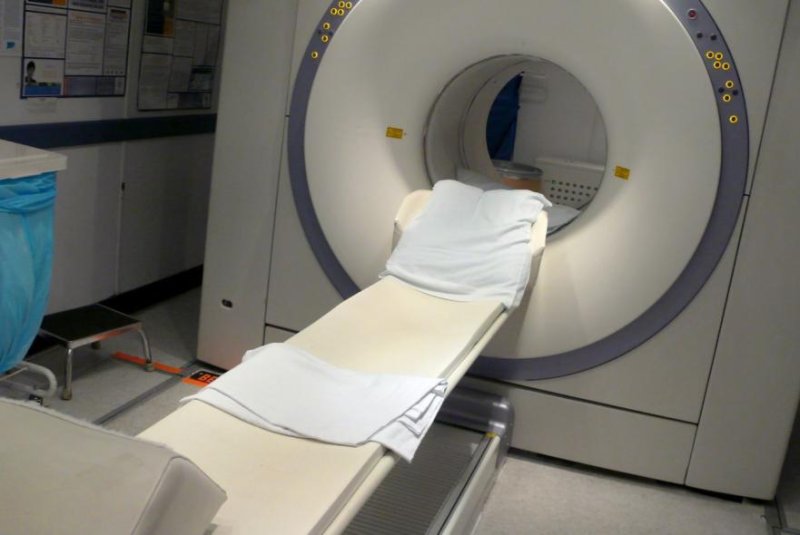Researchers in Iraly conducted PET/CT scans in which they compared copper-64 chloride, a new imaging agent, with fluorine-18-choline. Photo by
Jacopo Werther/Wikimedia Commons
March 5 (UPI) -- A new imaging agent that targets copper accumulation in tumors can detect prostate cancer recurrence in patients earlier earlier than current standard methods, researchers in Italy report.
In research published in the March issue of The Journal of Nuclear Medicine, researchers compared the results of PET/CT scans to determine the efficacy of screening with copper-64 chloride, a new imaging agent, compared to fluorine-18-choline.
Multiparametric magnetic resonance imaging was also performed, and the biodistribution, kinetics of the lesions and radiation dosimetry of the new agent also were evaluated.
The recurrence of prostate cancer, which grows slowly, can occur in 30 percent to 90 percent of men, depending on their high risk prostate cancer and the initial treatment the patient, according to the Prostate Cancer Foundation. A rising prostate-specific antigen, called PSA, often is the first sign seen before clinical signs or symptoms.
"This is the first time this novel agent has been compared with [fluorine-18-choline]-PET/CT in a considerable number of prostate cancer patients with biochemical relapse," said Arnoldo Piccardo of E.O. Ospedali Galliera in Genoa, Italy, in a press release. "Early detection of prostate cancer relapse may improve the clinical management of patients, for example implementing early salvage radiotherapy."
Fifty prostate cancer participants with biochemical relapse after surgery or external-beam radiation therapy were enrolled in the study.
The effective dose of the agent was determined to be similar to those of other established PET tracers, although they were higher than for 18F-Choline.
This agent is neither accumulated in, nor excreted from, the urinary tract, which is the main uptake in the liver.
In this method, a thorough pelvic assessment increases the possibility of identifying small lesions close to the bladder, the researchers report.
Researchers found no adverse reactions with the injection. In PET/CT scans, the agent had a higher detection rate than 18F-Choline in patients with low levels of PSA.
Piccardo said larger trials with this PET tracer will help further define its capabilities and role in managing prostate cancer.















